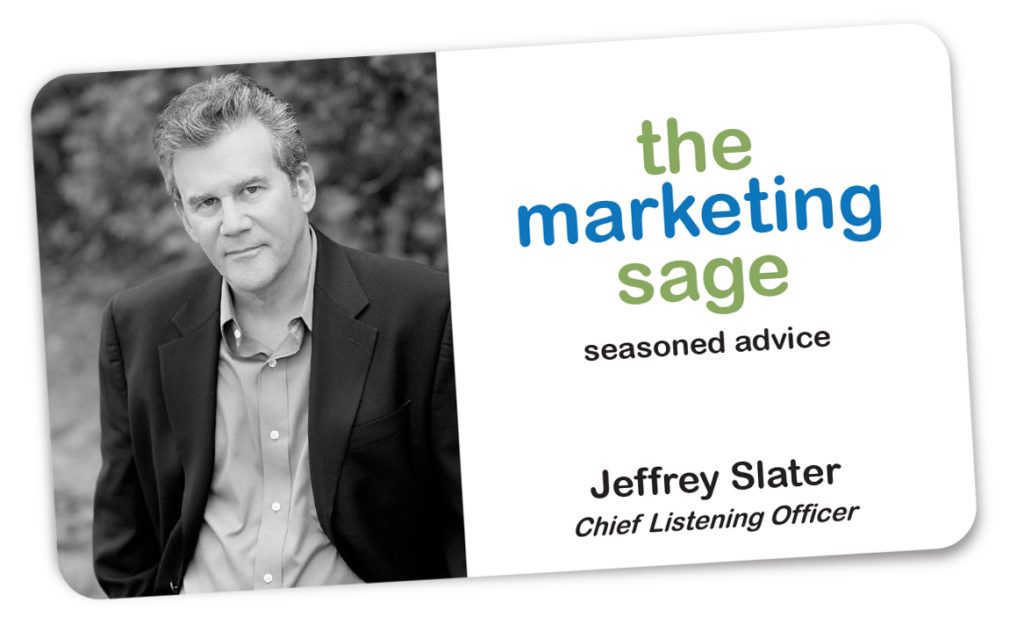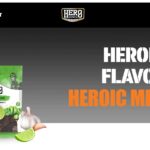Brand Positioning: Different or Remarkably Distinctive
In marketing and branding, effective brand positioning is essential for creating a unique identity that resonates with consumers.
There are two fundamental approaches to brand positioning being different and being distinctive. While they may seem similar initially, significant differences between the two concepts can significantly impact a brand’s success and longevity in the market.
- An unusual flavor of frozen treats that no one else sells, like jalapeno lime and hibiscus, is different. But it is a unique flavor, not something distinctive to the category.
- A frozen treat specifically focused on an occasion, like breakfast, is distinctive. That’s something everyone else in the category ignores – time of day.
Think about it.
As far as I know, no one sells frozen popsicle-style products for breakfast. That is surprising to this marketer.
Smoothies could be frozen and made and positioned as breakfast on the go – and something kids and adults would love.
In my past life, we made a Rachel’s Brownies Breakfast Bar in the early 1980s that was a brownie for breakfast. (Cinnamon, apple, raisins, carrots – like a muffin in a bar shape).
Brownies for breakfast? That’s distinctive.
Different Brand Positioning
Being different in brand positioning involves setting a brand apart from its competitors by emphasizing unique features, attributes, or benefits. The goal is to showcase how the brand stands out in the crowd and offers something that others do not.
This approach often highlights the product or service’s specific functional or practical aspects. Brands that adopt a different positioning strategy often use direct comparison and competitive positioning to emphasize their uniqueness.
Apple Inc is a classic example of a brand that successfully differentiated itself through product attributes. In the early 2000s, Apple’s “Think Different” campaign effectively positioned the brand as an innovative and creative alternative to traditional PC manufacturers. Apple carved out a distinctive position in the tech industry that separated it from other computer manufacturers by emphasizing its user-friendly design, sleek aesthetics, and emphasis on creativity.
Marketing scholar Kevin Lane Keller emphasizes the importance of differentiation in brand positioning, stating that “creating points of difference and points of parity with competitors is the key to successful brand positioning” (Strategic Brand Management).
Distinctive Brand Positioning
Distinctive brand positioning goes beyond merely being different; it aims to establish a one-of-a-kind identity that no other brand can replicate.
Truly distinctive brands create a unique and memorable position in the minds of consumers. This positioning relies on emotional connections, storytelling, and creating a strong brand personality that evokes specific emotions and values.
A prime example of a distinctive brand is Red Bull. When t arrived on the U.S. scene, Red Bull’s positioning as the “energy drink that gives you wings” goes far beyond the product’s functional benefits.
It is associated with extreme sports, adventure, and a sense of pushing boundaries, making it more than just an energy drink but a lifestyle choice. This distinctive positioning has allowed Red Bull to create a passionate and loyal following that extends beyond traditional marketing efforts.
According to marketing expert Jonah Berger, distinctiveness is a crucial driver of word-of-mouth marketing, as unique brands are more likely to be talked about and shared by consumers (Contagious: Why Things Catch On).
Jonah Berger
Different vs. Distinctive
While different and distinctive brand positioning strategies have merits, being distinctive often provides a more decisive and sustainable competitive advantage. Different positioning can still leave room for competitors to imitate or match specific attributes, eventually diluting the brand’s uniqueness. On the other hand, distinctive positioning creates a more profound and lasting impression on consumers, fostering brand loyalty and advocacy.
Let’s consider another example, Airbnb. In the travel industry, Airbnb has carved out a distinctive position as a platform that offers “unique stays and experiences.” Instead of merely differentiating based on price or location, Airbnb has created a one-of-a-kind offering.
What they do allows travelers to immerse themselves in local cultures, staying in accommodations that range from treehouses to yurts. This distinctive positioning has disrupted the hotel industry and captured the hearts of adventurous travelers worldwide.
Marketing thought leader Seth Godin emphasizes the importance of creating a remarkable and unique brand in his book “Purple Cow.” He argues that memorable brands are like purple cows in a field of brown cows; they stand out and are worthy of remark, generating word-of-mouth and attention.
The Difference is Distinctive
In summary, brand positioning that is different focuses on highlighting unique features and functional benefits to set a brand apart from competitors. While this can be effective, distinctive positioning, which creates a one-of-a-kind identity and emotional connection with consumers, offers a more robust and sustainable competitive advantage.
Brands like Apple, Red Bull, and Airbnb demonstrate the effectiveness of being distinctive, as they have become synonymous with their unique positioning in the market.
To succeed in today’s competitive landscape, businesses must aim to be truly distinctive and create brands that are not only different but also unforgettable and irreplaceable in the hearts and minds of consumers. They also have to find some aspect of the category that they let go of or focus on in a way that makes them distinctive.
When Ikea decided that since the furniture store category included assembling furniture and delivery, they decided to not do those two things. Instead, they focused on other aspects of the industry and, segmented the market.
How is your brand positioning with a distinctive flair?
PS -Watch Mark Ritson’s take on difference versus distinctiveness which I was unaware of when I first wrote this post. Mark has a mini-MBA course. His talk is refreshing, frank and insightful.
Photo by jet dela cruz on Unsplash
You can set up a time to chat with me about your marketing challenges using my calendar. Email me jeffslater@themarketingsage.com Call me. 919 720 0995. The conversation is free, and we can explore if working together makes sense. Watch a short video about working with me.





